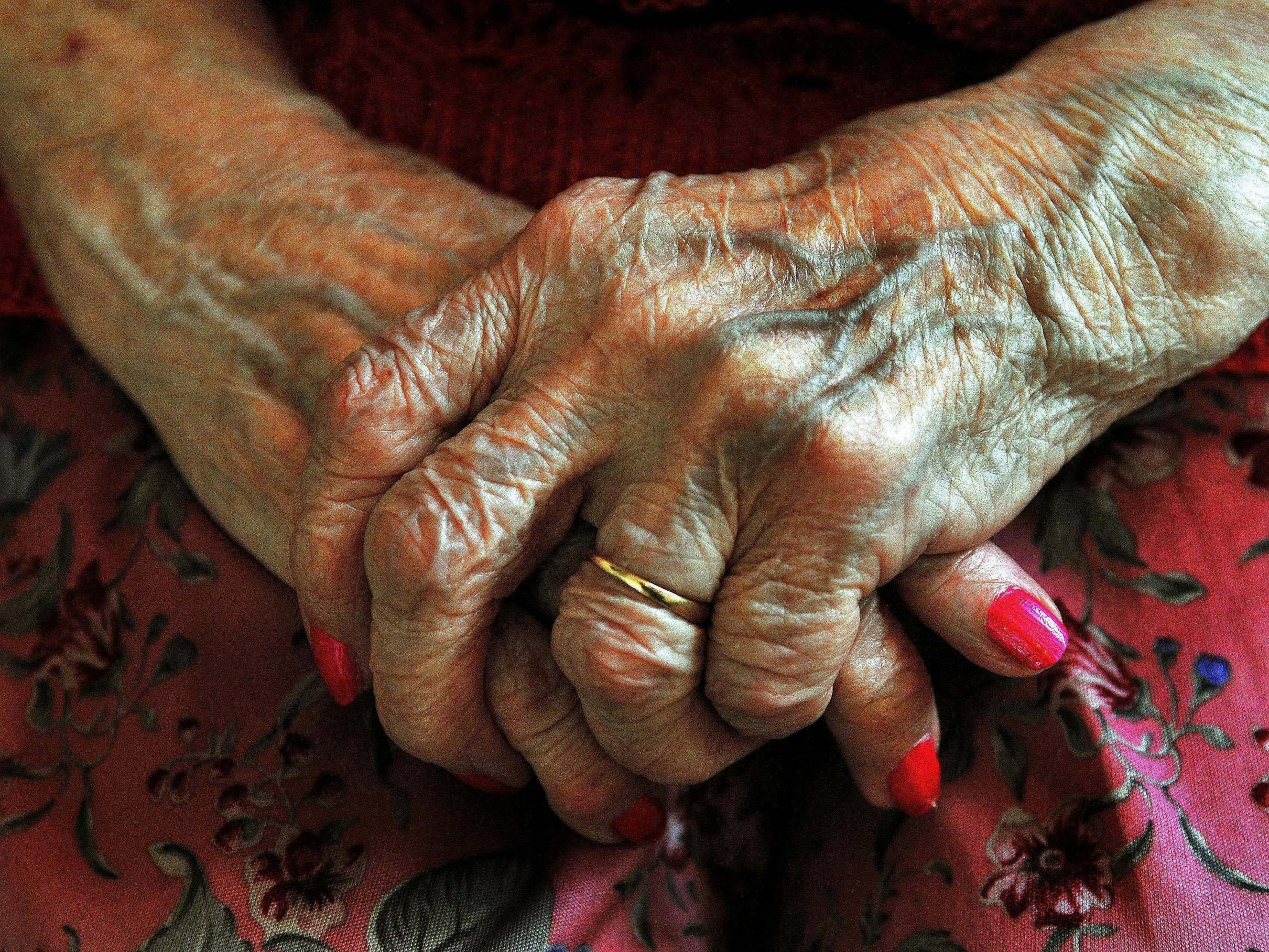Isolated by lockdown: the people with no connection to the outside world who have been told they can’t leave home
At-risk people who live alone have been cut off by the lockdown but volunteers are helping to ensure they are not forgotten, writes Mark Critchley


Your support helps us to tell the story
From reproductive rights to climate change to Big Tech, The Independent is on the ground when the story is developing. Whether it's investigating the financials of Elon Musk's pro-Trump PAC or producing our latest documentary, 'The A Word', which shines a light on the American women fighting for reproductive rights, we know how important it is to parse out the facts from the messaging.
At such a critical moment in US history, we need reporters on the ground. Your donation allows us to keep sending journalists to speak to both sides of the story.
The Independent is trusted by Americans across the entire political spectrum. And unlike many other quality news outlets, we choose not to lock Americans out of our reporting and analysis with paywalls. We believe quality journalism should be available to everyone, paid for by those who can afford it.
Your support makes all the difference.The biggest challenge facing Alison, as she self-isolates at her home in Salford, is loneliness. Since lockdown measures were introduced last month, the 60-year-old, who lives alone, is one of millions who were effectively shut inside indefinitely. As things stand, those over 70 and others with underlying health conditions will remain “shielded” until the end of June, having been told not to leave their homes under any circumstances and to minimise all non-essential contact with other people.
Though many can rely on the support of family and friends that they live with, others are alone and have little connection with the outside world. Carers come to visit, carrying out their regular duties while dropping off food and medicine. Healthcare workers may attend to provide essential care when necessary. Otherwise, the only contact that many at-risk people have with others comes on the phone. Sadly, some have nobody to call.
But Alison, who has to self-isolate due to a pre-existing health condition, is one of the lucky ones. Her doctor had heard of a scheme run by the NHS Salford Clinical Commissioning Group and designed to help vulnerable people in her position. “The next thing I knew I got the phone call,” she says.
A regular chat every few days with her designated phone buddy has made a “tremendous” difference to her quality of life in lockdown. “I’d have been bald by now if it wasn’t for them, pulling my hair out,” she says. “You hear people saying ‘oh it’s my job’ and you can tell it’s a job for some people, but they’ve been different,” she adds. “They’ve always gone the extra mile for me.”
The service – called Stay in Touch – has a team of volunteers trained in working with those who have dementia, learning disabilities and physical impairments. They are receiving around five new referrals a day. “I anticipate by the end of April we’ll probably have about 200 people,” says Amanda Rafferty at NHS Salford. Plenty of users refer themselves after growing tired with the isolation of lockdown. Others have been referred by concerned carers, GPs or – in one case – a local vet.
About 90 per cent of those using the service are self-isolating because of a serious long-term condition, while the other 10 per cent includes single parents struggling to cope with no school. An increasing number of those referred to the service suffer with mental health issues, as the support groups and counselling services that they once relied on are simply no longer available. They all share one thing in common. “They just want to know that on the other end of the phone there’s a voice,” says Rafferty. “Somebody said last week that she just wanted to hear a smiling face.”
But the service is not only there to cheer isolated individuals up. It helps to protect them too. “There are some people with dementia who perhaps might wander out looking for company and put themselves at risk,” Rafferty explains. Others might worry about being unable to pay a utility bill at the post office, while some are scared of running out of food. “It’s not just about talking to them,” she adds. “If we say to someone we’re going to contact them at a particular day and time and they’re not there, then we can raise the alarm.”
Thankfully, that has only been necessary on a couple of occasions and more often than not, someone has accidentally unplugged their phone rather than come into any kind of serious distress. But at least with this service in place, someone is always looking out for those who may otherwise be ignored. “They might be OK one day and have food and medication and then a couple days later they’ve not got something that they desperately need,” says Rafferty. “We can make sure that they’re referred on.”
Madge is another service user who lives alone in Salford. She is registered blind and normally requires help to get out of the house. With that no longer available to her, any sort of conversation helps. “It’s made a hell of a difference to me,” she says. There are still bad days, but the fact that a call from her phone buddy Nat is never far away helps get her through. “Knowing that someone is going to call, it keeps you going. I don’t know what I would have done if this hadn’t been here. I am still here because of it.”
Brian, an 84-year-old living alone in Broughton with no family or friends close by to support him, sparked an immediate connection with his phone buddy over their shared love of crime dramas. Another service user David, meanwhile, suffers from depression. But through his twice-weekly chats with a volunteer, he has found new motivation to get out more and socialise. “I am feeling so much more positive about life,” he says, with plans to join a local activities group and get fit once the lockdown measures have been lifted.
Whether the phone buddy service will still exist then is unclear. It was started in response to the coronavirus crisis, but as Rafferty notes, “a lot of people are saying it’s a service that should be there longer term anyway”. After all, there will still be people who are isolated, alone and often stuck indoors once the pandemic is over. And if anything, one of the more valuable lessons which the lockdown has taught us all is the value of having somebody to talk to.
Join our commenting forum
Join thought-provoking conversations, follow other Independent readers and see their replies
Comments